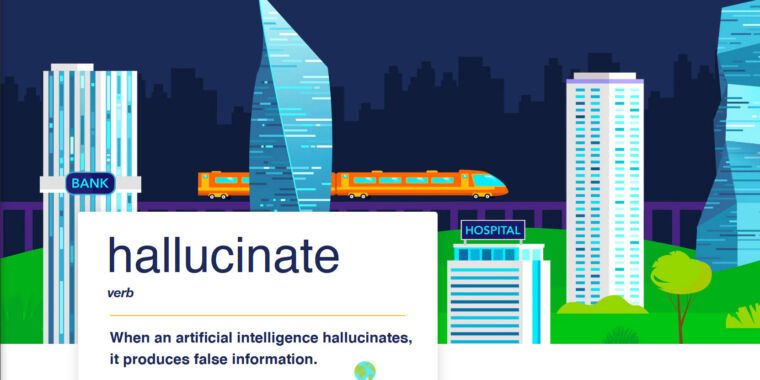A screenshot of the Dictionary of Cambridge website reveals that “hallucinate” has been designated as the word of the year for 2023.
The Dictionary of Cambridge recently declared “hallucinate” as the word of the year for 2023, citing the widespread use of large language models (LLMs) like ChatGPT, which occasionally generate inaccurate information. In an accompanying description on their website, the Dictionary explained that when artificial intelligence hallucinates, it produces false data.
The decision to select “hallucinate” as the Word of the Year for 2023 reflects the Dictionary of Cambridge team’s acknowledgment of how this new meaning encapsulates the ongoing discussions surrounding AI. They emphasized the significance of understanding the capabilities and limitations of generative AI, highlighting the importance of using it cautiously and efficiently.
The term “hallucination” in the realm of AI initially emerged as a technical term within machine learning. With the integration of LLMs into everyday applications like ChatGPT, the term transitioned into common usage, leading to some confusion and concerns about anthropomorphism. The Dictionary of Cambridge’s primary definition of hallucination for humans involves perceiving things that are not present, a concept that some find contentious due to its association with conscious perception.
Machine-learning researchers frequently use the term “hallucinate” to describe AI errors, recognizing the non-conscious nature of AI models. However, this technical understanding may not align with the general public’s perception. To address this discrepancy, an alternative term, “confabulation,” was proposed to describe the creative gap-filling process of AI models without the anthropomorphic connotations.
The use of “hallucinate” to describe AI errors has implications for how society perceives and interacts with artificial intelligence. Instances of AI-generated misinformation have led to legal disputes and ethical considerations, emphasizing the need for critical thinking when utilizing AI tools.
Despite advancements in reducing false hallucinations with models like GPT-4, AI systems continue to exhibit errors based on their training data and inference processes. Techniques such as reinforcement learning through human feedback (RLHF) are being explored to enhance AI performance and minimize inaccuracies.
In conclusion, the evolving landscape of AI terminology underscores the importance of human oversight and critical thinking in leveraging these powerful tools effectively. The inclusion of AI-related terms in the Cambridge lexicon reflects the growing influence and significance of artificial intelligence in contemporary discourse.






